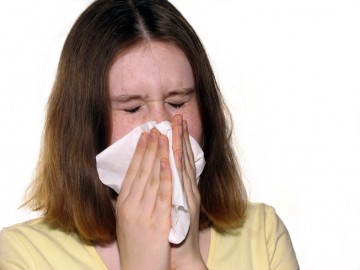By Drs. Kevin Lee and Persia Pourshahnazari on May 31, 2023
While not a fundamentally dangerous condition, CSU can have a significant impact on a patient’s quality of life and can be challenging to manage. Symptoms can be prolonged and can recur even after a long symptom-free period. Escalate and taper non-sedating H1-antihistamines, encourage daily antihistamine use, and add corticosteroids or refer to an allergist if needed.
By Drs. Kevin Lee and Persia Pourshahnazari on March 21, 2023
Despite being a fairly common problem, with an estimated prevalence of 0.5–5%, chronic spontaneous urticaria (CSU) is often a challenging condition for health-care providers to diagnose and for patients to accept as a diagnosis. A diagnosis of CSU does not equate to a diagnosis of a systemic autoimmune disease. We do not routinely recommend dietary modification for CSU. We advise patients with CSU to limit alcohol intake and to take a higher dose of antihistamines prior to receiving vaccinations.
By Drs. Raymond Mak and Tiffany Wong on January 27, 2021
Between 5% to 10% of the population reports an allergy to penicillin. After careful assessment, over 90% of these individuals are found to carry a false allergy label. Having a penicillin allergy label carries many potential harms, including prolonged hospital stays, increased patient costs, risk of more side effects, and an increase in resistant organisms. As such, penicillin allergy has become a major public health concern.
By Dr. Laura Sauvé on February 7, 2018
Vaccines are safe, but sometimes adverse events following immunizations do happen, and can be very concerning to families. If your patient has an AEFI, there is a voluntary reporting system. Public Health Officers in your local Health Authority will be able to answer most questions or concerns.
By Dr. Jennifer Grant on September 6, 2017
Recent data show that up to 90% of patients with a reported penicillin allergy are mislabelled and of those who are allergic, many beta-lactams can still be safely prescribed due to low risk of cross-reactivity. Mislabelling of penicillin allergy is due to many things including misdiagnosis (confusing a viral exanthema for allergy), purer formulations of antibiotics, loss of allergy and differences in side-chain structure.
By Dr. Susan Hollenberg on April 15, 2015
In December, 2013, Health Canada approved a 4- component Meningitis type B (4CMenB) vaccine. The vaccine approved in Canada utilizes technology based on ‘outer membrane vesicles. These are unique capsular identifiers that comprise fingerprints for a serogroup B strain. The challenge has been that over 8000 MenB strains exist!
By Dr. Amin Kanani on March 2, 2015
Patients are often referred to determine if they have a food allergy. The prevalence of food allergy in Canada is 6.7%, however more than 20% on the population modifies their diet because of perceived food allergy. Approximately 85% of all food allergies are to peanut, tree nut, cow’s milk, egg, wheat, soy, sesame and seafood.
By Dr. Laura Sauvé on November 5, 2012
Rotavirus vaccines can prevent important morbidity for young infants, and the associated physician visits, emergency department visits, hospitalizations and related parental stress and missed work days due to rotavirus infection.
By Dr. George Luciuk on September 25, 2011
Nasal woes can cause lots of complications. Most of them start insidiously but can progress steadily. Awareness by the family physician of what “can happen” is very important.
By Dr. Edmond Chan on September 7, 2010
“There is no convincing evidence that delayed introduction of food proteins such as peanut beyond 4 to 6 months of life has any benefit in allergy prevention”









Recent Comments